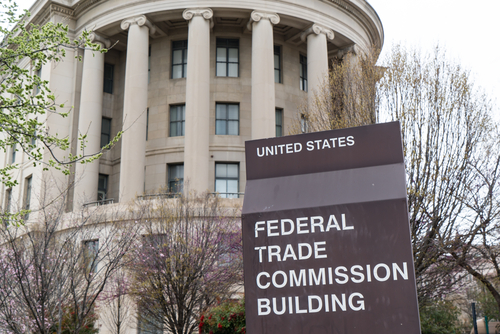The U.S. House of Representatives advanced a bill that would restore the Federal Trade Commission’s (FTC) authority to go to court to get consumers and businesses their money back from scammers.

The bill, the Consumer Protection and Recovery Act (H.R. 2668), would restore protections stripped by a recent Supreme Court decision. Historically, FTC would return money taken by scammers, fraudsters, and other lawbreakers to consumers. In the last three years alone, the FTC returned $11.5 billion to nearly 10 million consumers. However, on April 22 of this year, that monetary relief for consumers stopped when the U.S. Supreme Court ruled that section 13(b) of the FTC Act is limited to stopping or mandating certain conduct. The Supreme Court ruled that it does not allow the FTC to seek equitable monetary relief or require bad actors to return money earned through illegal activity.
The Consumer Protection and Recovery Act restores the FTC’s authority to seek monetary relief by amending section 13(b) of the FTC Act to provide the FTC with express authority to obtain both injunctive and monetary relief, including monetary redress for consumers in court for all violations of the laws FTC enforces. Further, it allows the FTC to pursue many kinds of equitable relief, including restitution for losses, contract reformation and rescission, monetary refunds, and the refund of property.
“Too often, scammers prey on society’s most vulnerable, particularly our seniors, veterans, small businesses, and the disabled,” Rep. Terri Sewell (D-AL), one of the sponsors of the bill, said. “During the COVID-19 pandemic, we’ve seen a surge in this type of illegal activity. This is simple. When hard-working Alabamians fall victim to financial scams, the FTC should have the authority to step in and return them their money … With this bill, we are sending a clear message: government must work for the people.”
The Consumer Protection and Recovery Act has the support of several groups. Including the AFL-CIO
Americans for Financial Reform, Consumer Federation of America, Consumer Reports, Consumer Action, National Consumers League, National Association of Consumer Advocates, and National Consumer Law Center, to name a few.